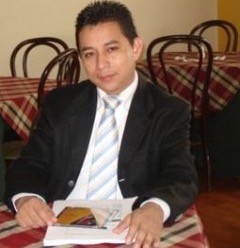INTERVIEW: Avelino Martinez Sandoval, CEO at ApagroCOL S.A.S., works with the Colombian national government’s Territorial Renewal Agency (ART), which advances rural reform in the areas most affected by Colombia’s armed conflict. Sandoval works on economic development initiatives that uplift rural communities and indigenous peoples, within the framework of peace agreements between the Colombian government and the Revolutionary Armed Forces of Colombia (FARC).

HT: You’ve taken important work on your shoulders, a very important burden for the industry. Being at the epicenter of so many interests, seeking to do good, what’s your biggest challenge?
AV: The biggest challenge is to make Colombian industry understand the advantages that industrial hemp offers and how it can help us in developing a circular economy. That the national hemp industry has the capacity to develop products of all kinds and help reverse climate change. It’s important that the country’s new regulations go in that direction.
HT: With Colombia offering so many opportunities in industrial hemp, which sector or products are most inviting for international investment?
AV: One of the areas that draws the attention of the Colombian industry is production of hemp paper. And fiber production for other applications, as well as food and oils. These areas are not at all addressed on an industrial scale; that’s where investors should concentrate their efforts.
HT: What comparative advantages does Colombia offer for the hemp industry?
AV: Most importantly, the clarity of regulation of industrial hemp in Colombia. It’s legal to plant, process and transform hemp into products. The other advantage is large tracts of unused land. The climate is very suitable for hemp. A local industry with large demands for raw materials can create and supply a new circular economy.
HT: How is progress with your initiative?
AV: Our group has obtained the licenses to plant and transform hemp in Colombia. We’re now bringing in different varieties of hemp seeds to start small pilots with research centers, universities and other interested stakeholders. We’re looking for varieties that best adapt to our soils and climate, and can produce plants with less than 1.0% THC. This will let us make strategic decisions regarding our direction in the various hemp sectors going forward.

